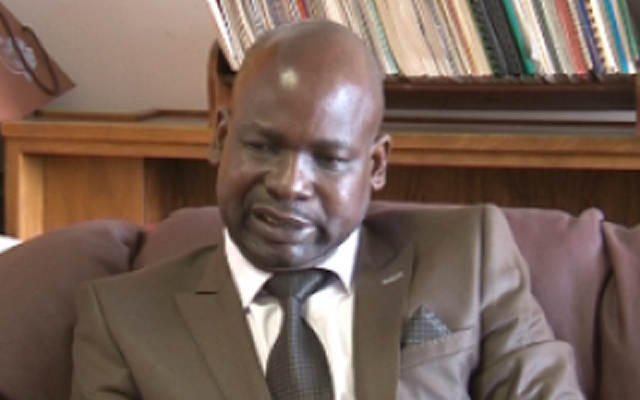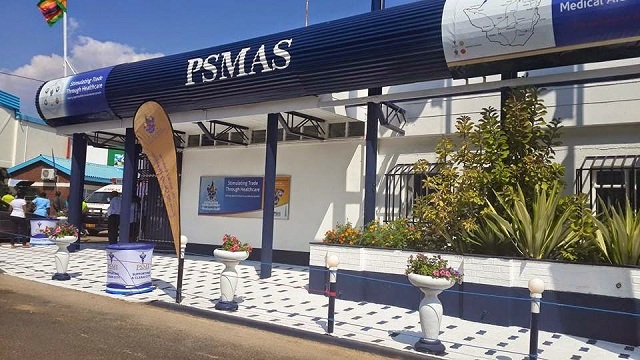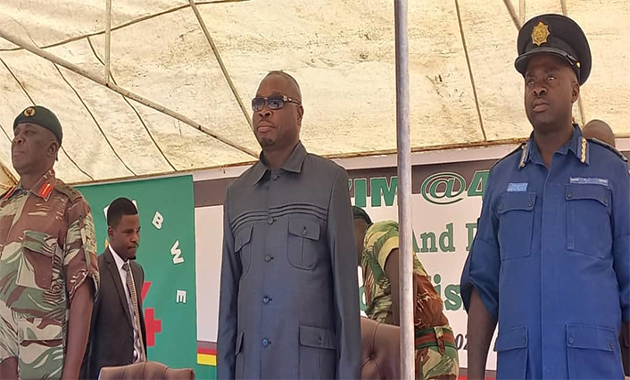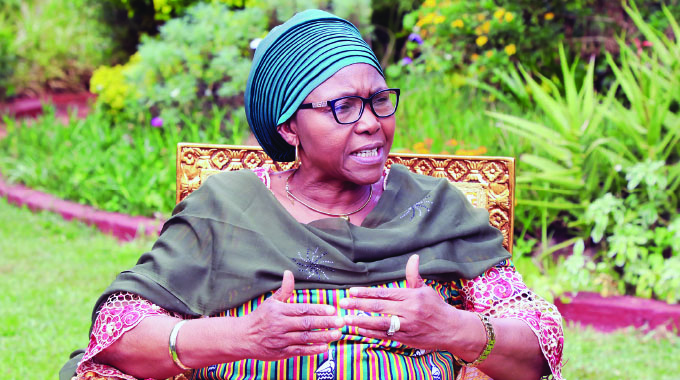Prosecutor General Tomana bows to ConCourt

Daniel Nemukuyu, Harare Bureau
Prosecutor-General Johannes Tomana has complied with a Constitutional Court judgment to issue out certificates allowing the private prosecution of Jane Mutasa, Munyaradzi Kereke and Vivek Solanki on various charges.
Mutasa will be jointly charged with three others — Charles Mapurisa, Caroline Gwinyai and Naquib Omar — for allegedly defrauding Telecel Zimbabwe of $1,7 million in an airtime voucher scam while Kereke is accused of raping a minor.
Solanki and Zarina Ebrahim Dudha are accused of swindling African Medical Investments in a Trauma Centre ownership wrangle.
National director of public prosecutions Florence Ziyambi issued the certificates yesterday on behalf of Tomana.
The National Prosecuting Authority declined to prosecute the seven suspects and also refused to issue the complainants with authority to institute private prosecutions.
Last week the Constitutional Court slapped Tomana with a 30-day prison term for defying a High Court and a Supreme Court order to issue the certificates for the private prosecution of Kerere, and Telecel Zimbabwe shareholder Mutasa.
Tomana’s sentence was wholly suspended on condition he issues the certificates within 10 days.
The certificate issued in respect of Kereke reads:
“Whereas Munyaradzi Kereke was accused of committing rape as defined in Section 65 and indecent assault as defined in Section 67 of the Criminal Law (Codification and Reform) Act Chapter 09:23 respectively; and whereas a private party, who can show some substantial and peculiar interest in the issue of the trial arising out of some injury which he individually has suffered by the commission of the offence, may prosecute, in any court competent to try the offence, the person alleged to have committed it. Now therefore, I Florence Ziyambi, a delegate of the Prosecutor General of the Republic of Zimbabwe, having been authorised by him in terms of Section 6 of the Criminal Procedure and Evidence Act do as I hereby certify on his behalf and instruction that the Prosecutor General has seen statements or affidavits on which the charge is based and declined to prosecute at the public instances.”
The certificate for the prosecution of Solanki reads:
“Whereas Vivek Solanki and Zarina Ebrahim Dudha were accused of committing 56 counts of fraud as defined in Section 136 of the Criminal Law (Codification and Reform) Ac, 19 counts of theft as defined in Section 113(2) (d) of the Criminal Law (Codification and Reform) Act and 11 counts of forgery as defined in Section 137 of the Criminal Law (Codification and Reform) Act.
“And whereas a private party, who can show some substantial and peculiar interest in the issue of the trial arising out of some injury which he individually has suffered by the commission of the offence, may prosecute, in any court competent to try the offence, the person alleged to have committed it.”
A private prosecution is where a complainant is allowed to institute a trial using the existing court structures and staff except the prosecutor, who should be a private individual.
Experts said a complainant may prosecute on his or her own and in some cases the complainant’s lawyer of choice may be the private prosecutor.
The complainant is expected to meet all the legal costs and other costs like witnesse expenses but in the event that the suspect is convicted, he or she pays the costs.
The NPA’s compliance with the judgment saved Tomana from a 30-day prison terms for contempt of court.
Telecel lawyer Isaiah Mureriwa confirmed receiving the certificate saying it was now up to his client to pursue the case or not. “I confirm that we have received the certificate. It is now up to my client as to what they will do with it.
“What is important to me as the chief architect of this concept and argument is that I have set the jurisprudence correct.
“Individuals complying with the statutory requirements can now prosecute those who offend against them on their own in the event the State decides not to prosecute,” he said.
Telecel Zimbabwe had earlier on indicated that it had withdrawn its intention to prosecute Mutasa.
Charles Warara of Warara and Associates, who acted for the rape complainant in the Kereke case, welcomed the development.
“It is a welcome development although it came a bit late.
“Our desire is that jurisprudence must not be delayed, which may amount to denying it. We are hoping that we will get justice in this case,” he said.
AMI lawyer Beatrice Mtetwa could not be reached for comment.











Comments